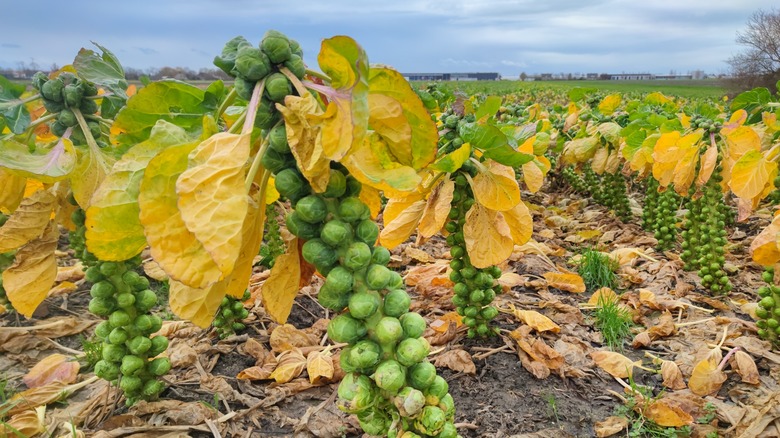In terms of cultural exports from Belgium — waffles, Tintin, Chantal Akerman, etc. — Brussels sprouts have never ranked particularly high. If a movie or a TV show wanted to emphasize just how gross vegetables are to kids, they would either pile spinach on their plate or foist Brussels sprouts upon them. Essentially mini cabbages, Brussels sprouts have long had a reputation for being an unpleasant vegetable with a bitter, earthy flavor and an equally unappetizing smell. The fact that, historically, Brussels sprouts have been prepared by boiling them until they’re reduced to mush hardly helps.
Recently, however, there has been a reappraisal of the Brussels sprout. As more people become aware that the ideal way to cook Brussels sprouts is by roasting them until hot and crispy and including flavors like these tasty ranch-infused sprouts, their reputation has improved — but it doesn’t stop there. It turns out that, thanks to some Dutch plant breeders with a can-do attitude, Brussels sprouts really do taste less bitter than they used to.
Plant breeders bred out what made Brussels sprouts so bitter
Brussels sprouts were made so bitter by the presence of two compounds, glucosinolates called sinigrin and progoitrin, which are also present in other cruciferous veggies like broccoli (America’s favorite vegetable) and cauliflower. The chemicals likely originated as a way to make the plants less appetizing to insects and other animals that might want to eat them, which is good news for the sprouts but bad news for the kids who had to pick through them at holiday dinners. Not everybody is sensitive to these glucosinolates — some people have a gene that makes them taste unpalatably bitter — but enough people are that a reputation developed.
In the 1990s, Dutch scientists led by Hans van Doorn identified sinigrin and progoitrin as the culprits, then set about cross-breeding sprouts low in those glucosinolates with modern cultivars of Brussels sprouts until the majority became low-bitterness. It took a while for the vegetable’s reputation to catch up to these advances, but now there’s thankfully less of a stigma surrounding sprouts.



